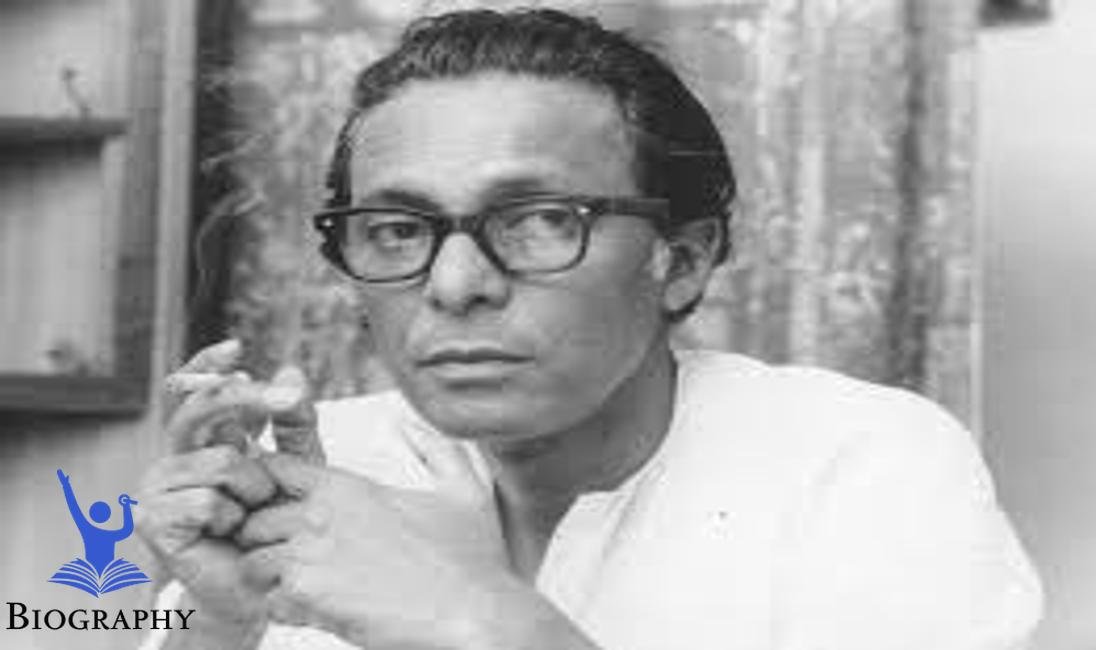Now Reading: Mrinal Sen | Director’s Journey Through Indian Cinema | Career Highlights & Bio
-
01
Mrinal Sen | Director’s Journey Through Indian Cinema | Career Highlights & Bio

Mrinal Sen | Director’s Journey Through Indian Cinema | Career Highlights & Bio
Biography of Mrinal Sen
| Attribute | Details |
|---|---|
| Age | 95 (at the time of passing in December 2021) |
| Weight | Not publicly known |
| Height | Not publicly known |
| Original Name | Mrinal Kanti Sen |
| Eye Color | Dark brown |
| Children’s Names | Kunal Sen, Sharmila Sen |
| Birthdate | May 14, 1923 |
| Spouse | Geetanjali Sen |
| Home | Kolkata, West Bengal |
| Hometown | Faridpur, Bangladesh |
| Origin | Bengali |
| Exes | None publicly known |
| Brand Ambassador Roles | None reported |
Early Life and Family
Mrinal Sen was brought into the world on May 14, 1923 in Faridpur, now in Bangladesh. Having been raised in a Bengali family, he was instilled with a love of handicraft culture at an early age. Her father, a teacher, and mother, a homemaker, emphasized the importance of school. With a young man who grew up in writing, music and film, the young Mrinal developed a keen interest in storytelling. He later moved to Kolkata, where he completed his schooling and gradually assimilated into the healthy social environment. Seeking encouragement in filmmaking, she got help from her family.
Early Career and Struggles
Mrinal Sen started his career in the 1950s first with storytelling. His outstanding memories are of the short film Raat Bhangar Dhin in 1955. However, he found it difficult to break into the world of feature entertainment and faced various challenges such as budget a intensity and possessions. His initial efforts received little attention and were met with numerous dismissals. Despite these disasters, Mrinal was focused on his vision of making a socially responsible film that plunges into the battles of ordinary individuals
Rise to Stardom
Mrinal shot to fame in the late 1960s with Bhuvan Shome (1969), which garnered widespread acclaim. The film marked a pivotal moment in Indian cinema, reflecting a new rush of narrative zeroing in on character and emotion as opposed to simple diversions Its unique mathematical style and man-study of it the love echoed through the crowd. Subsequent films such as Hunting (1976) and Ruins (1984) further cemented his status as a leading actor. In each role, Mrinal pushed the boundaries, making films that captured the complexities of human relationships and culture.
Success
Mrinal has received various local and global honors throughout his career. His films have received numerous honors at major festivals in Cannes and Berlin. Mrinal Sens narration was portrayed with authenticity and emphasized on a relatively simple tone. His major works include Calcutta 71 (1972), a depiction of the socio-political situation in India, and Akler Sandhane (1980), a depiction of the aftermath of the Bengal famine. These films were more than captivating; They were interesting, and got the public thinking about urgent social issues.
Failure
Despite his success, Mrinal faced hardships and setbacks. His films were partly underperforming in the film world, mostly overshadowed by mainstream recognition. Here and there, pundits accused him of being too facetious or appealing to the standard crowd. However, Mrinals responsibilities never ceased with his creative vision. He made films with films that made a difference, regardless of whether that meant facing commercial disappointments.
Television Career
Mrinal Sen similarly wandered into TV, though with an emphasis on film. He produced several television series that produced quality research. His series The Universe of
Humanitarian Work
Mrinal Sen was a filmmaker as well as a caring person. He participated effectively in various aspects of life. He used his foundation to express issues such as priorities, schooling and equality in his films and public discussions. And his commitment to social issues was reflected in his work and personal life, making him a clear force for change.
Personal Life and Controversies
During her life, Mrinal had a relationship with Gitanjali Sen, and they raised two youngsters, Kunal and Sharmila. He kept his normally private life out of the media spotlight. When confronted with politically charged discussions in his films, he held fast to his beliefs, believing that craft should challenge cultural norms His associations with individual filmmakers and artists carried depth den added to his record, reflecting the interconnectedness of the entertainment world.
Legacy / Awards
Mrinal Sen passed away on December 30, 2021. However, his legacy lives on. He is widely regarded as perhaps the most admired actor in Indian cinema. His unique approach and commitment to cultural issues has enlivened an era of production. During his distinguished career, he received various honors including the most outstanding distinction in Indian cinema and the Dadasaheb Phalke Grant. His films resonate, enabling contemporary films to explore themes of authenticity and social awareness.
Mrinal Sense’s commitment to Indian cinema is complex, blending creative achievement with critical social analysis. His ability to depict the human condition will continue to earn him a place in the category of exceptional filmmakers.








































